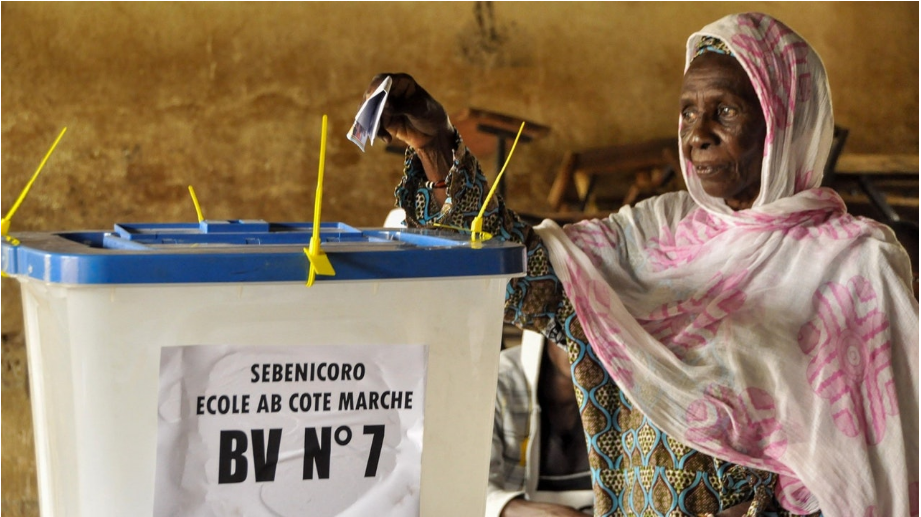
#Malielections:Mali in presidential runoff overshadowed by security crisis

Malians were called to the ballot box on Sunday for a presidential runoff likely to see Ibrahim Boubacar Keita return to office despite criticism of his handling of the country’s security crisis.
Security services said on Saturday they had disrupted a plot to carry out “targeted attacks” in the capital Bamako on the eve of the runoff. However an aide in the prime minister’s office has assured that security will be tightened for the second round
This means 36 000 Malian military will be deployed, 6 000 more than two weeks earlier, with a particular focus on the Mote region in the centre of the country where voting stations had been closed, Cheick Oumar told AFP
The second round is a rerun of a 2013 faceoff that Keita won by a landslide over former finance minister Soumaila Cisse.This year’s campaign saw fierce attacks on his failure to dampen a wave of jihadist bloodshed and ethnic violence.
But public enthusiasm has been low and the opposition is fractured.Keita, 73, was credited with 41.7% of the July 29 first-round vote while Cisse, 68, picked up 17.78%.
Cisse insisted on Friday he could turn things around on polling day – warning the status quo would only bring “chaos” in a “torn nation. “But he failed to unite the opposition behind him, and first-round challengers have either backed the president or refused to give voting instructions.
Few Malians attended a string of planned marches and protests called for by opposition leaders in the capital Bamako ahead of the run-off. As a result, Keita, commonly named “IBK” after his initials, is the clear favourite.
A few hundred Keita supporters gathered late on Friday in the capital of Bamako for the last meeting of the campaign.
“He needs to finish what he started,” Silandou Soumare, a civil servant, told AFP. “With all Malians on board, we can have peace in Mali!”
In 2013, Keita won more than three-quarters of the vote.
Voting opened from 0800 to 1800 GMT. Turnout was low in the first round of voting at around 40%.
Outside Mali, the hope is that the winner will strengthen a 2015 accord that the fragile Sahel state sees as its foundation for peace.






